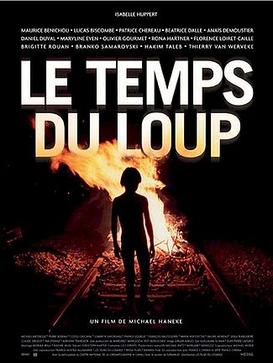
Herzog treats the subjects of his latest documentary in a peculiar fashion. One eccentric man is left to stand in front of the camera long after he's finished his diatribe about having descended from an Aztec King. Another man is cut off in his ramblings by a narration that interjects "to cut a long story short..." When these moments occurred, the audience around me laughed. I chuckled too. They were peculiar folk, after all; I imagine Herzog was being playful in his emphasis on their odd personalities. Then again, images do speak for themselves - what to think of a woman who traps herself in a luggage bag every night on stage?
Who are these people, exactly? They're just a handful of individuals who, as one interviewee puts it, "have each fallen down into the end of the world", that being Antarctica. A philosopher is now driving a forklift, a filmmaker is now serving up ice cream in the cafeteria, and an intelligent young man with a PHD in Linguistics is now keeping his eye on some plants. They're talented in their own field, yet they've somehow found themselves in this place, aiding a great scientific discovery. They've formed a new society, away from society itself. I'd say they deserve their segments.
But shining the spotlight on these individuals, operating within the confines of their immense scientifc compound, is just part of the bigger picture that Herzog is painting. We're in Antarctica to view nature at its most underestimated and unpredictable. It's not long after we've seen the stuffiness of the complex, and the unpleasant sea of mud that surrounds it, that we're thrust into the great white open.
When explorers first came across Antarctica, they assumed for the most part that the icebergs were one big static monster. They aren't, of course - they're constantly moving, at an alarming rate. We know this now - science has aided us in discovering much about the past and present, but the future is unwritten. What will happen to these icebergs can only be assumed, and the speed in which they change is on our hands.
So, is this a film about climate change? No, I wouldn't say so. To assume this would be awfully reductive, ignoring some of the larger considerations at hand. Herzog has always been fascinated with nature, be it his confusion over man's lust for fire or the disinterested stare of a grizzly bear. Nature presents itself in simpler ways here; we look at many beautiful creatures crawling along the seabed, discover new species after a day's worth of diving, celebrate said discovery with a jamming session on a barn roof.
These underwater excursions are shot with swooping (tracking, floating?) shots that glide across oysters, jellyfish and other such wonders of nature, joined with searing opera scores that would lift these sequences to the heights of Herzog's own Lessons of Darkness, if it wasn't for the shakiness of the camera disturbing the flow only slightly. This is but a minor quibble, and the images on show are nonetheless remarkable in their purity.
What sets this apart from other documentaries of its kind are the worries it raises; rather than simply observe the goings-on at the facility, Herzog ponders over the power of nature. Through his encounters at the end of the world - man, creature and iceberg alike - he considers our place in the grand scheme of things, of time. A collection of flowers and cards have been framed in the ice, bordered by popcorn. They are intended for future visitors: alien, perhaps?
The concept of global warming can be discussed and rejected time and again by the men in suits, but it's the problem of every living human on Earth. One thing is for sure: nature is bigger than us. We are not in control. We know very little and we underestimate even more. What could each of us say about the mental states of penguins? Or the calls of the sea lion under the icebergs? Or why a woman chooses to lock herself in a luggage bag?
On the face of it, Encounters is about the kinds of people that yearn further knowledge of the Earth they inhabit. They want to understand more. Unusual characters they may be, but that is what fascinates Herzog and his audience; we were okay to laugh. The nature of man is as intriguing and amusing as that of the penguin and the sirens beneath the icecap.
If I were to talk with these scientists, they would tell me that it's only a matter of time before nature wipes out mankind, and we go the way of the dinosaurs, lost in time. If I was to speak to a Creationist, I would be told that Armageddon is coming, complete with locusts and four horsemen.
Either way, I'm left feeling fairly insignificant.
8



